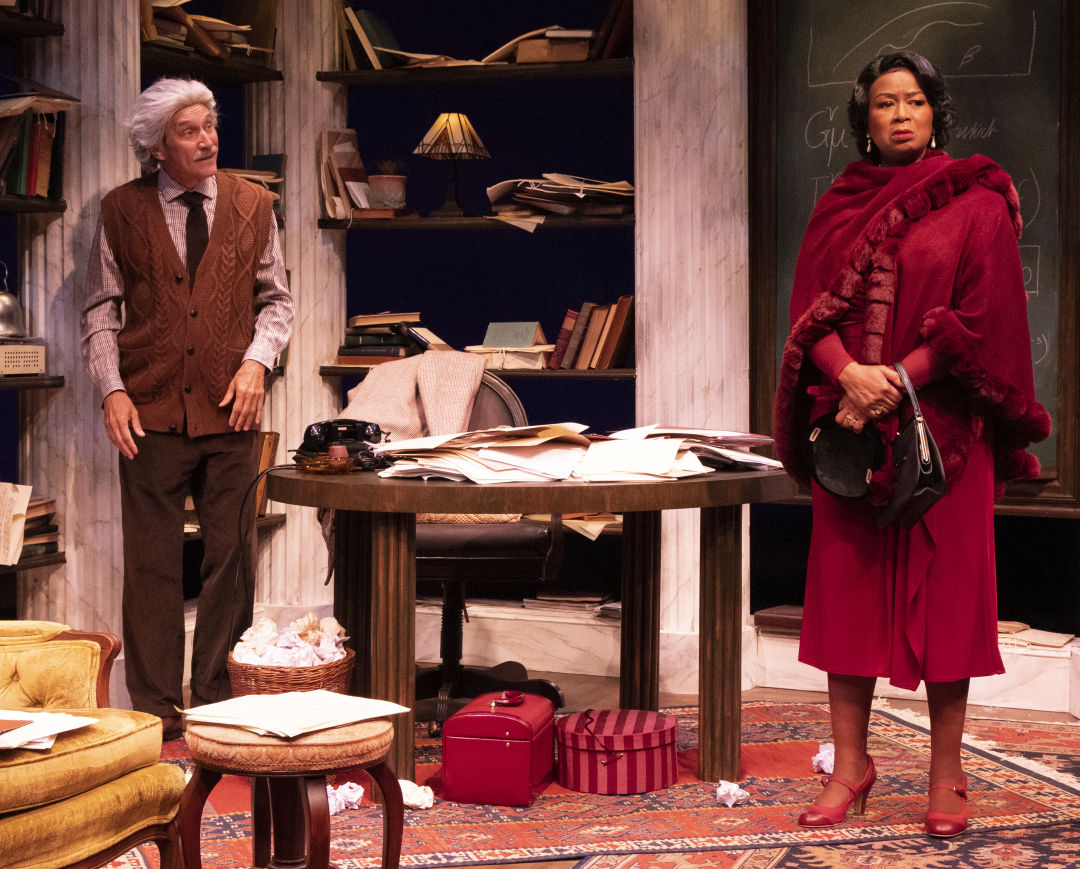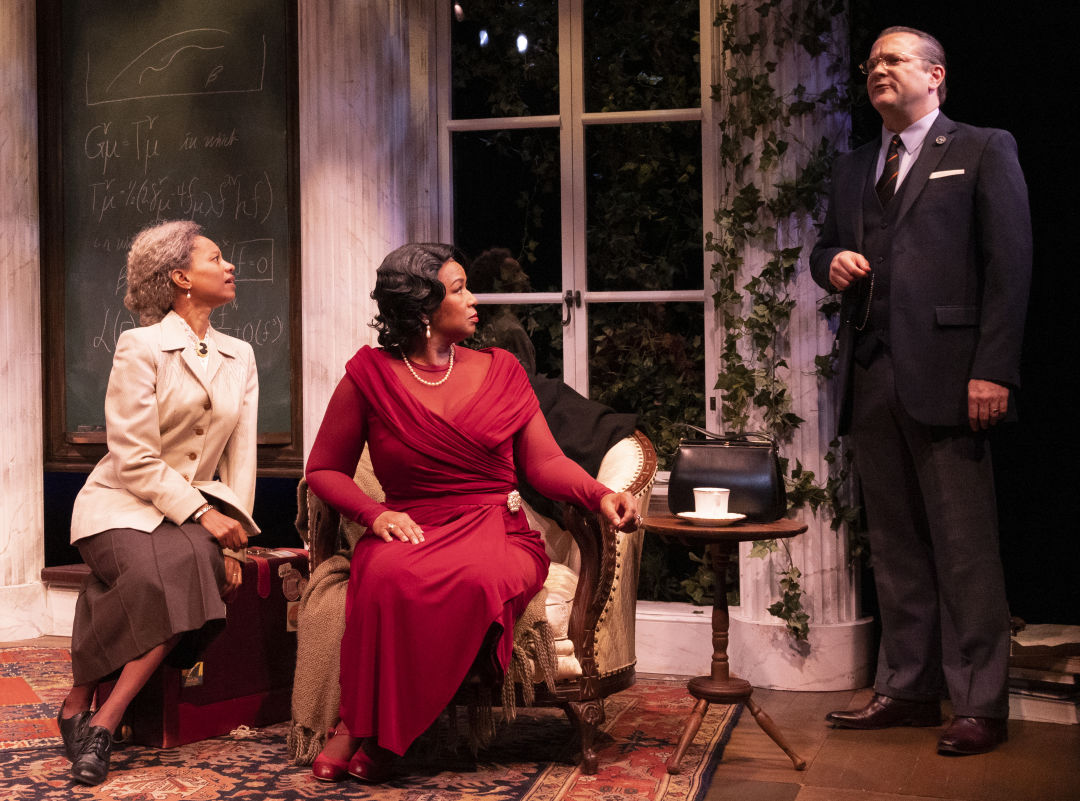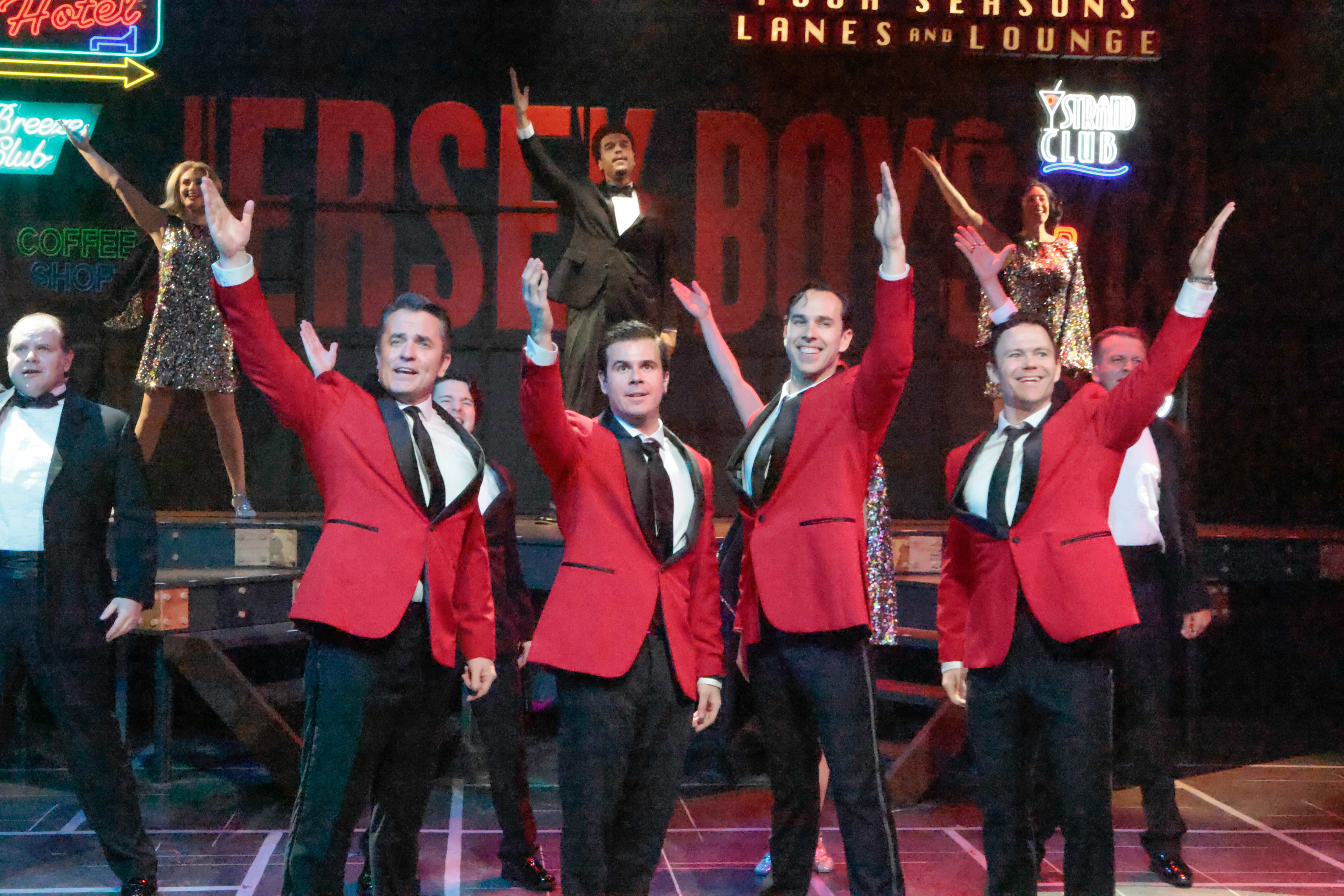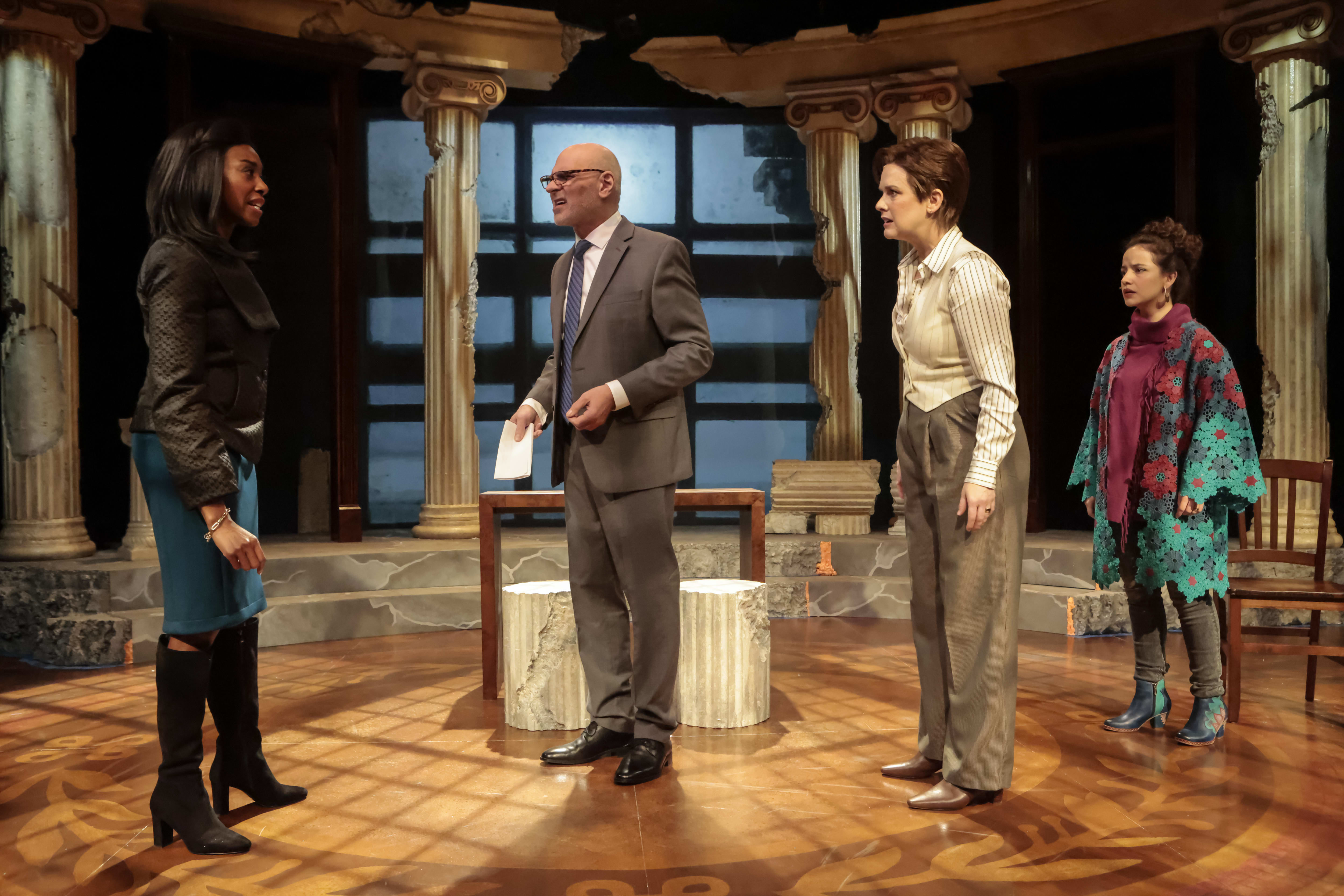FST's My Lord, What a Night Raises Some Important Questions

David Edwards and Thursday Farrar in FST's My Lord, What a Night.
Image: Matthew Holler
You may think you know a lot about Albert Einstein, but did you know that he became friends with the Black singer Marian Anderson after she performed in Princeton, New Jersey, and was refused accommodations at an all-white hotel? He took her into his home that night, and their friendship remained until his death. That’s the intriguing premise of Deborah Brevoort’s My Lord, What A Night, now playing at Florida Studio Theatre’s Keating Theatre.
The contralto and the physicist might seem to have had little in common, at first glance. But Einstein appreciated music, as many mathematical minds do, and both had experienced the sting of intolerance and discrimination, Anderson because of her skin color and Einstein because of his Jewish heritage. Most of the dialogue of Brevoort’s play, which is a Rolling World Premiere as part of the National New Play Network, centers on their very different approaches to dealing with that prejudice.
Einstein (David Edwards) is outspoken and proactive, a fact which doesn’t endear him to Abraham Flexner (Rod Brogan), the head of the Princeton institute to which Einstein is attached after leaving Europe in the wake of the Nazi rise of the 1930s. Anderson, on the other hand, prefers to let her concerts speak for her and to shun controversy, a stand which perplexes and dismays suffragist and civil rights leader Mary Church Terrell (Nehassaiu deGannes), who turns up at Einstein’s house (along with flocks of reporters) after discovering that it’s where Anderson is camping out.

Nehassaiu deGannes, Thursday Farrar and Rod Brogan.
Image: Matthew Holler
So, much of the action of the play, set in Einstein’s office/study (suitably cluttered with books, papers and a chalkboard bearing scientific equations in a design by Isabel and Moriah Curley- Clay), revolves around those opposing points of view. There are twists and turns to the arguments along the way, with some convincing back and forth among the characters. And those arguments ring as true today as they did in the 1930s, when the play takes place. Is it better to work quietly within a system to try to change it, or to protest publicly and attempt to overthrow it? You can debate that all night long.
And sometimes My Lord, What a Night suffers from too much discussion on that score, with the dialogue heavy on exposition and rather didactic. There is levity mixed with the seriousness (mostly due to Edwards’ jovial joking as Einstein), but you can get restless as one after another the characters press their points. While Thursday Farrar does deliver a feeling rendition of the spiritual “My Lord, What a Morning” in one scene, the play could use more of that emotional connection and uplift. The climax, which focuses on the refusal of the Daughters of the American Revolution to allow Anderson to sing at Constitution Hall, leading to her famous performance at the Lincoln Memorial, doesn’t have the impact it should have.
Farrar is fine throughout as Anderson, controlled yet conflicted, and Edwards is entertaining as Einstein, despite being burdened with an unfortunate wig. DeGannes likewise wears a wig, a gray one, to age her, but it’s still obvious the actress is years younger than the person she portrays. DeGannes offers a lot of conviction in her speeches, though. And Brogan, in a role that initially casts him somewhat as the bad guy, makes a convincing transition throughout the play.
But I never felt as tied to the outcome of Anderson’s dilemma as I wanted to. How much of that relates to the cast or direction (by Kate Alexander) and how much to the play itself, is not easy to say. If you want to decide for yourself, My Lord, What a Night runs through Aug. 15, and tickets are available by calling (941) 366-9000 or visiting floridastudiotheatre.org.



